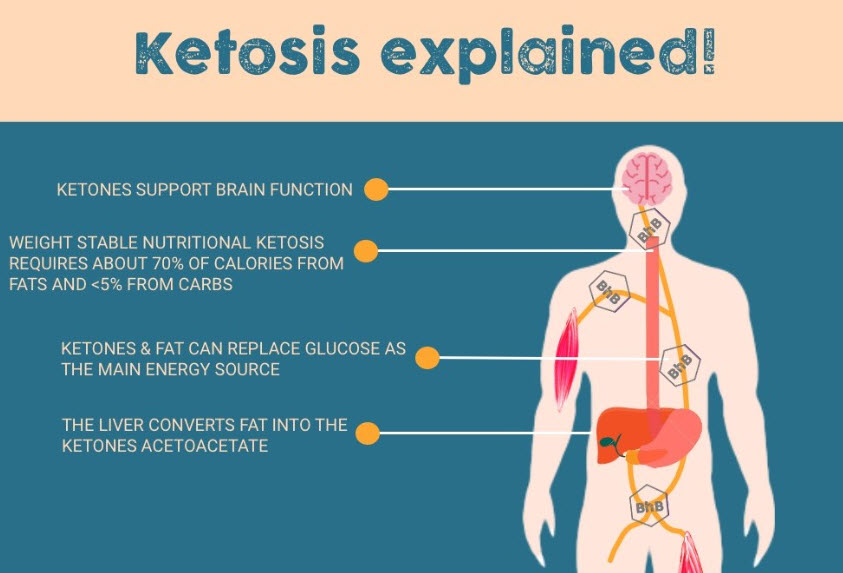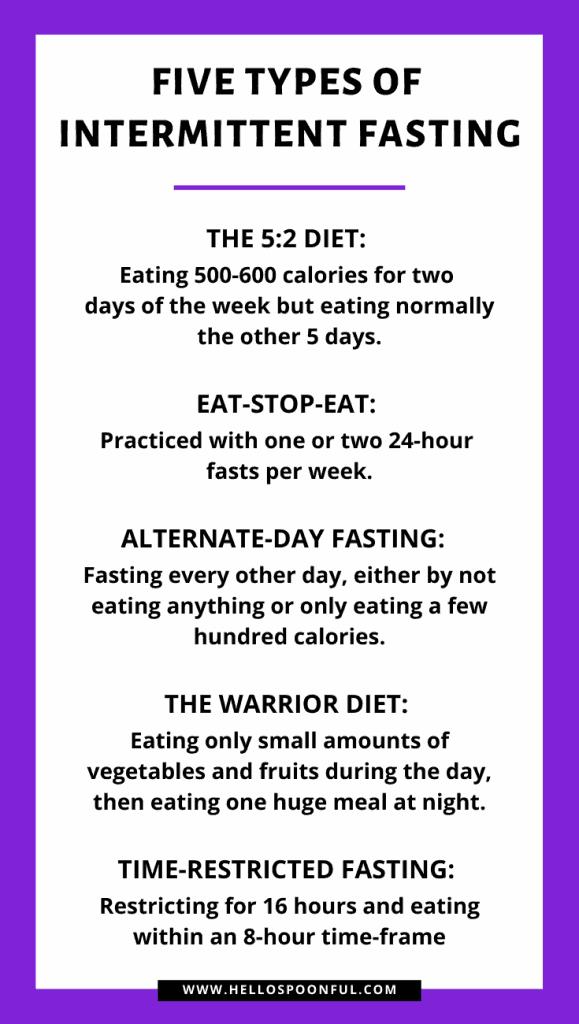
Intermittent fasting may cause nutrient deficiencies if you’re not careful. The key is to eat a balanced diet that includes lean proteins, vegetables, fruits and healthy fats during your eating window.
Also, make sure to stay hydrated by drinking water and avoiding beverages with added sugars. Be aware that prolonged periods of fasting can cause your body to break down muscle for energy.
What are the nutrients I need to get while intermittent fasting?
Intermittent fasting is a popular health and fitness trend that has many benefits, including weight loss, improved heart health, brain health and gut health. While intermittent fasting is a safe and effective way to optimize your diet, it is important to get the right nutrients to ensure you stay healthy while fasting.
Protein is essential for muscle health, immune function and maintaining a healthy metabolism. Eating protein-rich foods such as fish, eggs and legumes is a great idea while fasting to help keep you feeling full. In addition, eating cultured proteins like yogurt and kefir can provide you with the added benefit of probiotics that promote digestion and gut health.
Avoiding sugary drinks, refined grains and unhealthy snacks is also key while intermittent fasting. In addition to being high in calories, these foods can cause blood sugar and insulin levels to rise quickly. This can lead to hunger, nutrient deficiencies and long-term health issues. Aim to eat a balanced diet that includes plenty of fruits, vegetables, protein, healthy fats and whole grains.
What are some common nutrient deficiencies to watch out for when intermittent fasting?
Many people who do intermittent fasting experience nutrient deficiencies, including iron, calcium, vitamin D and potassium. These deficiencies can be due to not eating enough during the time you aren’t fasting or because of pre-existing conditions that may get aggravated by intermittent fasting.
If you aren’t getting enough iron, you can develop anemia, which causes weakness and fatigue, a fast heartbeat, shortness of breath, brittle nails, sore or swollen tongue, pale skin, and a craving for strange things like dirt, according to the Mayo Clinic. You can increase your iron intake by eating foods such as meat, fish, beans (lima, kidney and navy), spinach and fortified cereal.
Vitamin K is necessary for blood clotting and directs calcium into bones and teeth rather than into arteries, where it can cause plaque formation. You can find this nutrient in kale, broccoli and other greens, liver, egg yolks and fermented foods.
How can I prevent them?
Many different intermittent fasting plans exist, so finding the one that best fits your lifestyle and preferences is crucial. The most common method involves eating within a specific time window each day. The most popular options are the 18:6, 16:8 and 14:10 time-restricted diets, also known as the Leangains or 16:8 diets.
Eating a balanced diet that includes lean proteins, veggies and fruits as well as smart carbs and healthy fats helps you meet your nutritional needs while intermittent fasting. This helps prevent nutrient deficiencies and promotes weight loss, energy levels and overall health.
It is also important to eat enough calories and nutrients during the hours you are allowed to eat. Doing so may help you avoid hunger, irritability and other unwanted side effects of intermittent fasting.
It is also recommended that you listen to your body's natural hunger cues. Ignoring these signs can lead to overeating during your eating window and sabotage your health and weight loss goals.
What should I do if I experience nutrient deficiencies while intermittent fasting?
There are many different ways to implement intermittent fasting, and a variety of factors can influence your results. To minimize the chance of nutrient deficiencies, make sure to follow a balanced diet that includes whole foods and a mix of protein, healthy fats, fruits and vegetables, and low-fat dairy products.
You may also want to consider supplementing your diet with omega-3 fatty acids, which help reduce inflammation and can aid in weight loss. Vitamin D is another important nutrient to ensure adequate levels, as it promotes calcium absorption and supports bone health.
Finally, it’s important to avoid over-exercising on non-fasting days and to rest and relax. Excessive exercise can cause a variety of health problems, including fatigue, overtraining, and a weakened immune system. It’s also important to drink plenty of water, both during your eating windows and between meals. This will help to keep your body hydrated and to prevent dehydration and electrolyte imbalances.
Frequently Asked Questions
What foods are you forbidden to eat when you fast intermittently?
Intermittent fasting is best when you are strict about your abstinence. In order to keep your plan intact, you must eliminate certain food groups from your diet that could undermine your efforts.
You can make a big difference in the success of your fasts by avoiding processed foods and sugary goods. Avoid sugary cereals and candy bars, icecream, and any other sweets, regardless of how difficult it might be.
It is important to completely omit saturated fats from the table. To avoid any health hazards associated with prolonged fasting, foods such as fried foods and fatty meats should be avoided. Fasting should not be done with refined carbohydrates such as white bread and chips.
Finally, alcohol should always be avoided during any fasting period - alcoholic beverages supply lots of empty calories that can inhibit the weight loss benefits associated with intermittent fasting. You'll be able to keep your fasts on track if you stick to the above guidelines.
Can I have any food while intermittently fasting
For a successful fast, it is important to nourish your body by eating the right food. Even though you might believe that you can eat whatever food you want and still reap the rewards, you need to remember to stick to the guidelines and restrictions associated with your fasting method.
It's important to consider what and when you can eat, depending on your specific diet plan. Although intermittent fasting may have different rules, some people adhere to stricter guidelines than others. However, you can only consume food within your designated feeding window.
Healthy, nutritious snacks that contain healthy fats and protein are always a good option. They will keep you full for the duration of your fasting period. It is important to remember that you shouldn't approach calorie restrictions with an all or nothing mentality.
It is also beneficial for many to record their meals in order to stay more aware of their dietary habits. This will allow them make better choices regardless of the time they eat. Avoiding unhealthy processed foods is key to long-term success with intermittent fasting.
Is 16/8 intermittent fasting right for you?
Examining intermittent fasting and your particular lifestyle can be a critical deciding factor when making dietary changes. 16/8 Intermittent fasting is an eight-hour fasting period that involves eating and fasting 16 hours per 24-hour cycle. The health benefits of intermittent fasting have been well-documented. But it is important to understand the pros and cons of this method.
You will be better prepared to make this decision if you look into the details of 16/8 intermittent fasting. The aim is to reduce total calorie consumption, without feeling restricted or uncomfortable. It could be as simple as skipping certain meals during the day or eating at certain times such as breakfast and lunch. Knowing how much and how frequently you eat will help you make a plan to achieve your nutrition goals.
Knowing your body's needs will help you determine whether 16/8 is right for you. Variables such as activity level, hormonal imbalances, medical conditions, stress levels, age, and genetics come into play when evaluating one's dietary preferences and food choices. You may find that this intermittent fasting is not best suited for your or your body's needs. Many diets are available, from low-carb to high fat and healthy eating plans. So don't let it discourage you if one doesn’t suit your needs.
No two bodies are exactly alike - it is up to you how much energy and effort you put into considering all dieting options when searching for the best suited for your needs. After researching 16/8 intermittent fasting, be honest about assessing yourself and finding out if this way of eating works right for who you are before fully committing in the long run!
How to do Intermittent Fasting for Beginners?
It can be daunting to begin intermittent fasting. But understanding how intermittent fasting works can make it easier to begin.
First, pick the type and duration of fasting that interests you. There are three main types, time-restricted intermittent fasting, the 16/8 and the 5/2. Time-restricted eating means that you eat only during certain hours of the day. The 16/8 method, on the other hand, requires that you eat within an 8-hour time frame and then skip the meals for the remainder of the day. The 5/2 diet has two non-consecutive days with calorie restrictions every week. Normal eating is allowed on the remaining days.
Second, make sure to stock up on nutritious foods that can be made quickly and are easy to eat when hungry. This includes nutrient-rich proteins such as eggs, fish, beans, and pulses; healthy fats from nuts and seeds or olive oils; high-fibre carbohydrates like quinoa or buckwheat; and various fresh fruits and vegetables to get your daily dose of vitamins and minerals.
You should also plan how you will deal with social pressure while dining out with family and friends. This is especially important for those who live a fast, intermittent lifestyle. Flexibility is also important in staying focused on your goals, so try to incorporate sweet spot meals that offer increased satisfaction while restrictive enough not to undo the progress made over the last few weeks or months.
Finally, keep yourself motivated by tracking your results. This includes body weight, waistline, hips, and other pertinent areas. However, don't forget reward yourself for reaching goals.
Can you eat what you want on intermittent fasting and still lose weight?
Would you like to eat whatever you want while still enjoying all the benefits associated with intermittent fasting. The answer is yes! You can lose weight by intermittent fasting and still enjoy your favourite foods.
Intermittent Fasting can be a great way to kickstart your weight loss journey if you are careful about planning and have the discipline to stick with it. Tailor your eating windows and plan to include some of your favourite meals in your diet plans. Pay attention to the portion size and calories from snack items or sauces.
Studies show that when it comes to intermittent fasting, balance is key. It is not possible to counter the positive effects of intermittent fasting for 16-20 hours each day by eating indulgent foods. Intermittent fasting is a good way to burn fat, decrease hunger signals, and improve your mental clarity and focus.
Intermittent fasting is the perfect solution for those looking to change their lifestyle without sacrificing what they love most! When you strategically eat with purpose at specific times throughout the day, you can enjoy satisfying meals while drastically reducing your caloric intake. Don't wait! Get started right now and you will see how amazing intermittent fasting is!
What evidence does the research have to say about intermittent fasting as a way to lose weight?
You may be surprised at the possibilities of intermittent fasting and weight reduction. Study after study suggests that changing your eating habits throughout a day can improve overall health and weight management. Studies also show that structured fasting can increase metabolism, decrease food cravings, promote fat loss, and reduce inflammation.
Intermittent fasting is an intriguing concept based on several physiological processes that are designed to improve health outcomes and lead to weight loss success. Recent studies have shown that intermittent fasting can improve insulin sensitivity, cell repair and hormone balance, as well a positive effect on bacterial populations.
These lifestyle adjustments are promising for those looking for a lifestyle change and an additional tool to aid in weight loss. People who strive to achieve long-term success can reap the benefits of increased energy and mental clarity.
Equally impressive is the evidence pointing to experimental results of positive hormone balance through fasting protocols which keep hunger hormones in check, so you don't feel deprived or over-satiated by too much indulgence. This allows for optimal caloric intake while maintaining physical activity program goals.
The scientific research that supports intermittent fasting's impact on long-term wellness goals and the results of scientific research makes it simple to develop a plan of action that works.
Statistics
- When diet composition was controlled, most protocols were consistent with Health Canada and American Heart Association guidelines: 55% carbohydrates, 20% fat, and 25% protein. (ncbi.nlm.nih.gov)
- IF trials found weight loss of 0.8% to 13.0% of baseline weight with no serious adverse events. (ncbi.nlm.nih.gov)
- The rigor of fasting also varied, with several studies allowing 25% of regular caloric consumption during fasting periods. (ncbi.nlm.nih.gov)
- When diet composition was controlled, most protocols were consistent with Health Canada and American Heart Association guidelines: 55% carbohydrates, 20% fat, and 25% protein. (ncbi.nlm.nih.gov)
External Links
doi.org
- Clinical Management of Intermittent Fasting for Patients with Diabetes Mellitus
- 24-Hour Fasting in Diabetes: A guide for physicians advising patients regarding medication adjustments prior religious observances (or other outpatient surgical procedures). Grajower – 2011, Diabetes/Metabolism Research & Reviews – Wiley Online Library
ncbi.nlm.nih.gov
- Intense energy restriction is a better way to lose weight in obese men: The MATADOR Study - PubMed
- INTERMITTENT FASTERING AND HUMAN METABOLIC HEALTH. PMC
sciencedirect.com
- Influence of short-term repeated fasting on the longevity of female (NZBxNZW)F1 mice - ScienceDirect
academic.oup.com
- The effects of intermittent fasting on body composition, clinical health markers and human health
- Study of the Effects of an Intermittent Calorie-restricted diet on Type 2 Diabetes Remission: Randomized Controlled Trial
How To
Eating during Intermittent Fasting:
It can seem overwhelming to have to fast for a specified time period as part of an intermittent fasting plan. It is essential to be able to comprehend the different options available for eating your daily nutrients as well as why certain methods may be better suited for your individual health needs in order for any fasting journey to succeed.
The timing and method in which you eat foods can be controlled to achieve seamless optimization. The window of time during which you eat - also known as your "eating window" - can make all the difference in accomplishing an intermittent fasting regimen while maintaining control over your nutrition and lifestyle habits.
It is important to determine when your meals should be started and ended so that you can get the energy you need throughout your day and still have energy to burn. This is where optimal eating windows come in.
Intermittent fasting is a way of digitally portioning out larger multi-meal plans so that fewer food intakes are premised at specific times within each 24-hour cycle. This can help you control your digestion, the elimination process, hormone production, and overall stress.
Participating in intermittent fast plans is easy, whether you're looking to reduce calorie intake or simplify meal preparation. All it takes to do this is to know how to correctly order the necessary components. Get started today by assessing your body's needs and determining what type of schedule works best for healthier eating habits than ever before!
Resources:
 |
Weight Loss & Intermittent Fasting with Drs. Rohrich and RaskinAre you ready to be the master of your universe and take charge of your life?At Paleovsketo.com, we bring you only premium content on bringing.. |
 |
HelpHelp |
 |
Weight Loss & Intermittent Fasting with Drs. Rohrich and RaskinExpert Endocrinologist Dr. Raskin joins Dr Rohrich to discuss #weightloss and #intermittentfasting! Is it an effective way to lose weight? Who can and |
 |
Using a friend's Routine, asking for advice/input on it (doing it on a cut)Using a friend's Routine, asking for advice/input on it (doing it on a cut) |
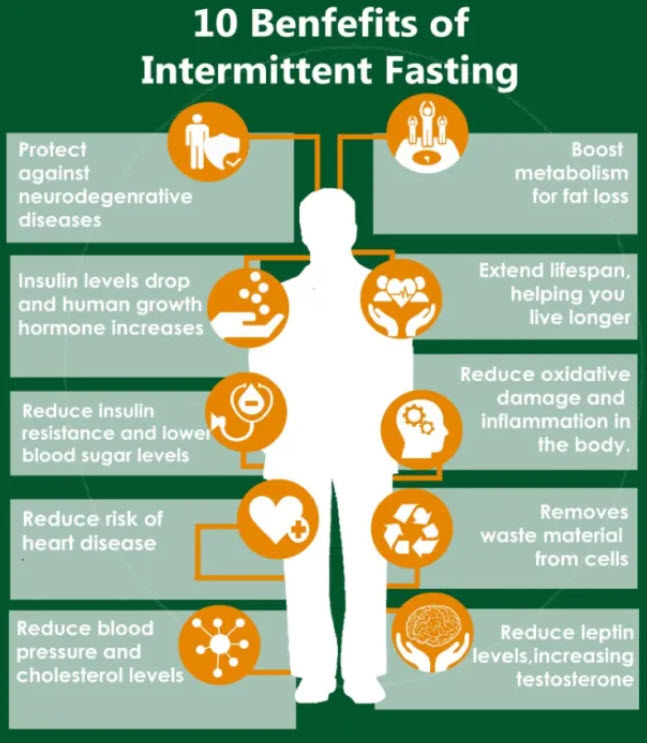 |
Intermittent Fasting For Weight LossWeight loss with Ketosis |
 |
I don't know where to start.I don't know where to start. |
 |
Intermittent Fasting-Weight Loss and Metabolic Switching.Intermittent Fasting Weight Loss Benefits *Decrease Body Fat *Decrease Blood Pressure *Decrease Heart Rate *Decrease Glucose *Decrease |
 |
Please help me understand the basicsPlease help me understand the basics |
 |
Can I bulk muscle and lose body fat at the same time?Can I bulk muscle and lose body fat at the same time? |
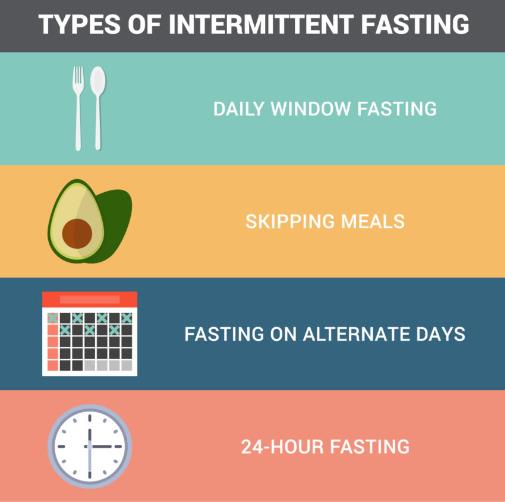 |
Intermittent Fasting For Pregnant WomenWhile intermittent fasting for pregnancy has its benefits, it can also be dangerous. Read on to learn more about the risks and benefits of.. |
 |
How to Do Intermittent Fasting – Intermittent Fasting Basics for Beginners – Dr.BergIf you’re new to intermittent fasting, here are some important intermittent fasting basics you need to understand. What to eat (Healthy |
 |
Is intermittent fasting harmful?Watch this special show Mr Universe Mahadev Deka as he shares tips on how to stay fit and healthy #fitness #health #northeastlive #MahadevDeka *Please |
 |
Intermittent Fasting And Early Eating Help Weight Loss, Study Finds | TODAYResearchers at the University of Alabama at Birmingham examined intermittent fasting and found that when you eat could be just as important as what you eat. |
 |
Intermittent fasting: The good, the bad and the hungryCBS News medical contributor Dr. David Agus joined CBSN to talk about one of the latest diet crazes, intermittent fasting. Dr. Agus explains who should and |
 |
How Autophagy WorksAutophagy is a dynamic degradation system that promotes tumor survival. It also promotes the growth of established tumors and facilitates metastasis. .. |
 |
Is intermittent fasting harmful?At Paleovsketo.com, we strive to provide you with the latest, most up-to-date information on various health topics such as the paleo diet, keto diet.. |
 |
Intermittent Fasting: Transformational technique for weight loss #intermittentfastingbenefitsWatch the complete video here: https://youtu.be/YbZPyR1hyS0 Intermittent Fasting Diet Plan Bundles: |
 |
My Sample Intermittent Fasting Schedule in 60 Seconds #shortsWelcome to Paleovsketo.com, the trusted source for up-to-date knowledge on lifestyle nutrition. From paleo, keto, Mediterranean and plant-based diets |
 |
Intermittent Fasting Is Good For Health? | ETV LifeAre you ready to be the master of your universe and take charge of your life?At Paleovsketo.com, we bring you only premium content on bringing.. |
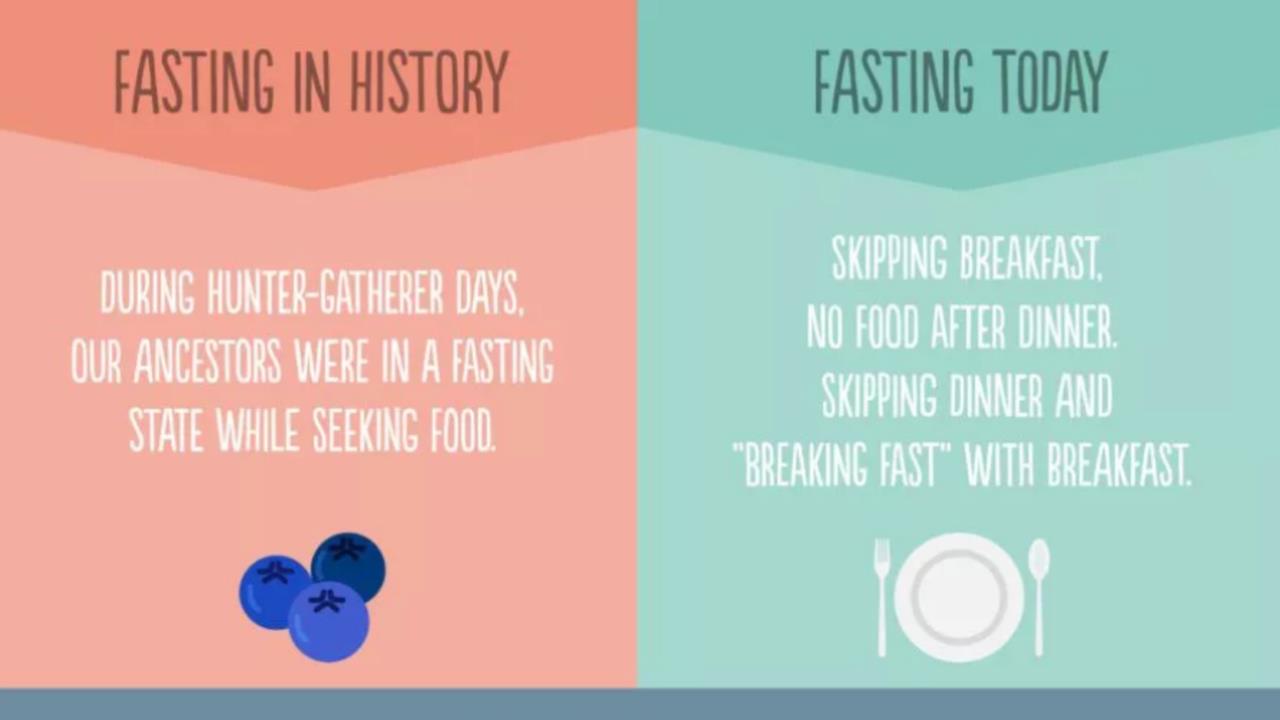 |
Is Skipping Breakfast Right For You?Skipping breakfast has a number of benefits, including the ability to lose weight, improve training performance, and increase growth hormone levels... |
 |
Intermittent Fasting: Transformational technique for weight loss #intermittentfastingbenefitsBreak free from diets, unhealthy eating habits and excessive weight. At Paleovsketo.com, we offer premium content to maximize your health lifestyle.. |
 |
Quick Weight Loss With Intermittent Fasting For Beginner's Ka REAL Formula Which No One TellsAt Paleovsketo.com, we bring you only the highest quality content on the lifestyle choices of Paleo, Keto, Mediterranean, and plant-based dieting,.. |
 |
7 Day Water Fast | NO FOOD ONLY WATERWelcome to Paleovsketo.com, the trusted source for up-to-date knowledge on lifestyle nutrition. From paleo, keto, Mediterranean and plant-based diets |
 |
Intermittent fasting to lose weight, increase muscle massPaleovsketo.com is a website devoted to providing premium content on the paleo diet, keto diet, intermittent fasting, weight loss, and eating healthy. |
 |
Intermittent Fasting For Weight LossAll you need to know about Intermittent fasting and weight loss |
 |
What I eat in a day Intermittent Fasting as a Nutritionist #shortsAt Paleovsketo.com, we strive to provide you with the latest, most up-to-date information on various health topics such as the paleo diet, keto diet.. |
 |
Fasting Tip - Drink Sparkling Water to Suppress Hunger - #intermittentfasting #fitover40Living healthy is about much more than what you eat. It's about finding a balance between body, mind, and spirit.At Paleovsketo, we believe this.. |
 |
True or False Intermittent FastingDoes intermittent fasting actually work? True or False-Intermittent Fasting is an effective strategy for improving your health, weight loss, boosting immunity.. |
 |
Warning! Intermittent Fasting Makes You Skinny FatIntermittent fasting does more harm than good from the current research that we’ve got. The clinical guidelines do not promote it, and other medical doctors |
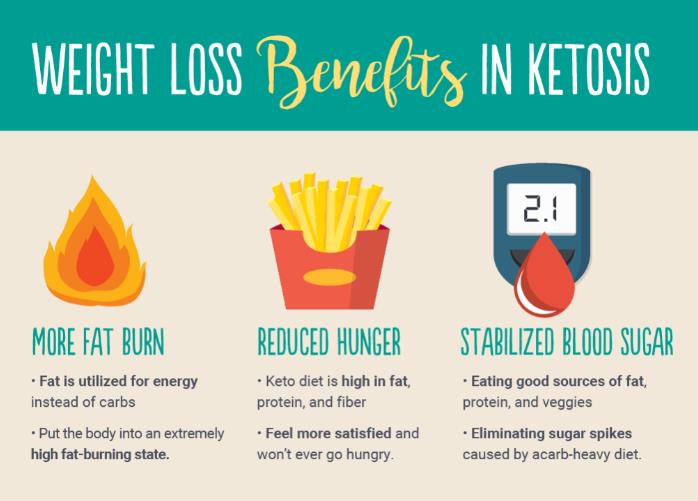 |
LIFE Fasting Tracker - LIFE Apps | LIVE and LEARNThe best, and free, intermittent fasting tracking app for iPhone and Android. Easy to use. Supports all fasting types. Fast with friends. Download for Free. |
 |
Warning! Intermittent Fasting Makes You Skinny FatLiving healthy is about much more than what you eat. It's about finding a balance between body, mind, and spirit.At Paleovsketo, we believe this.. |
 |
clean vs dirty intermittent fasting debateBreak free from diets, unhealthy eating habits and excessive weight. At Paleovsketo.com, we offer premium content to maximize your health lifestyle.. |
 |
1.9 Nutrition ABC's to improve your performance!Welcome to Paleovsketo.com, the trusted source for up-to-date knowledge on lifestyle nutrition. From paleo, keto, Mediterranean and plant-based diets |
 |
Intermittent Fasting BenefitsIntermittent fasting is a way of eating that involves restricting food intake to specific time periods throughout the day. It's becoming a popular.. |
 |
Intermittent Fasting: What is it, and how does it work?Intermittent fasting involves switching between fasting and eating on a regular schedule. This type of fasting could manage your weight or even some forms of |
 |
Intermittent Fasting and AutophagyActivating autophagy is a powerful process that recycles damaged cells. It helps maintain your health and can even help fight diseases. It is a.. |
 |
Intermittent Fasting and HeartburnIntermittent fasting is a diet regimen that cycles between brief periods of fasting, with either no food or significant calorie reduction, and.. |
 |
Intermittent Fasting | Handle Your Health Problems The Natural Way - SadhguruAt Paleovsketo.com, we understand that healthy eating can be a challenge. That’s why we strive to provide sound advice, recipes, and insight on the.. |
 |
Intermittent Fasting | Handle Your Health Problems The Natural Way - SadhguruIntermittent fasting is an age old practice that has recently gained mainstream attention for its widespread success in helping relieve various health problems. |
 |
Intermittent Fasting 101 — The Ultimate Beginner's GuideThis is a detailed guide to intermittent fasting (IF). Studies show that it can help you lose weight, improve health and perhaps even live longer. |
 |
Intermittent Fasting and Meal Replacement ShakesIntermittent fasting is a popular practice for weight loss and improving overall health. It involves restricting your eating schedule to certain.. |
 |
Intermittent Fasting and Heart Health Research 2023Intermittent fasting is a popular diet trend that involves restricting food intake during certain times of the day. It can include alternate day.. |
 |
Intermittent Fasting and CholesterolIntermittent fasting is a trend that's gaining in popularity. Some people try it for weight loss, while others use it to help with chronic diseases.. |
 |
Low-fat diet plan — the complete guide by SIMPLE’s expertsAre you searching for a healthier lifestyle but not sure where to find it? [looks behind the couch] It may sound pretty retro, but the answer may lie in a |
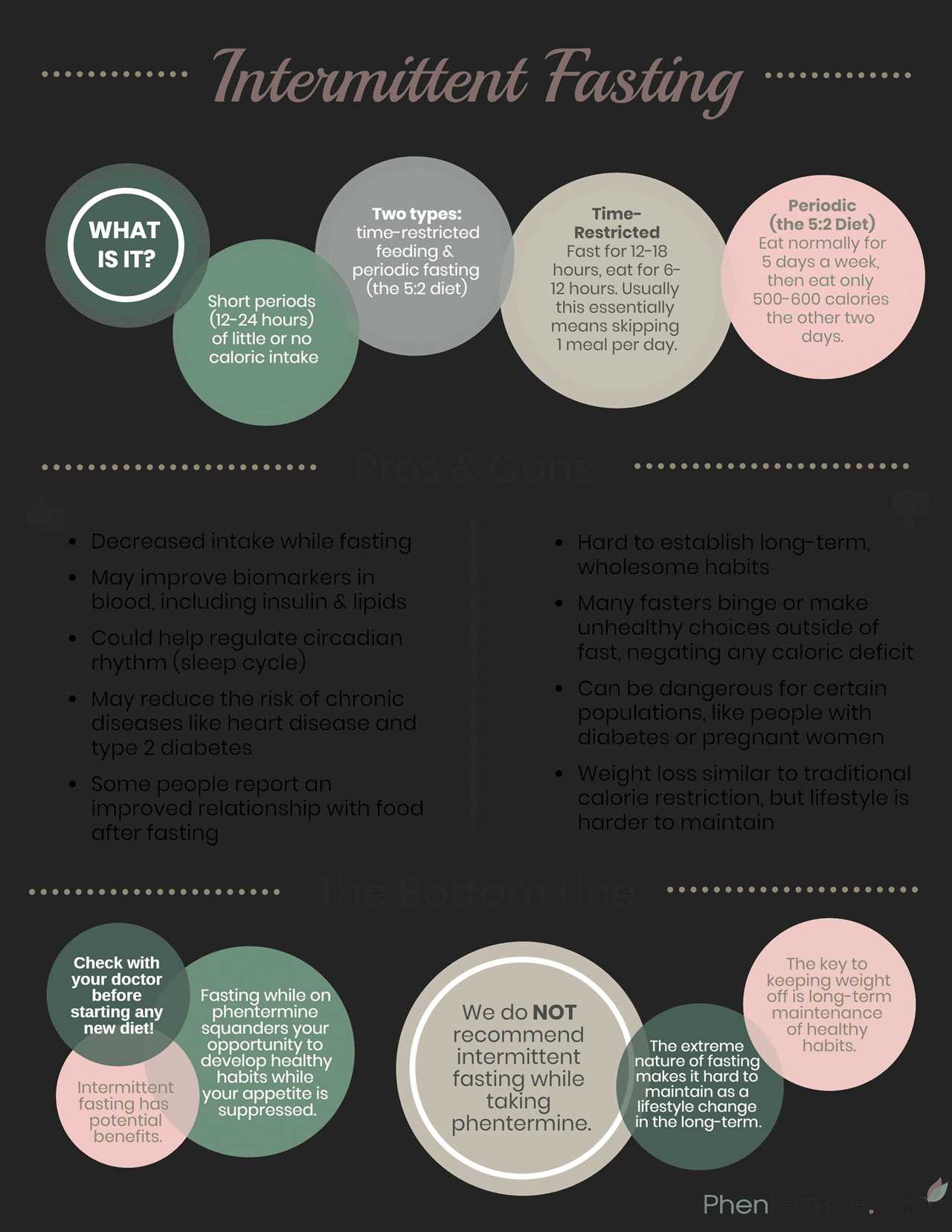 |
Is intermittent fasting good for you?Intermittent fasting isn't new, but it's gaining followers. What's the appeal? |
 |
16/8 intermittent fasting 7-day meal plan for beginnersIntermittent fasting (IF) can be super effective for losing weight and can have profound health benefits. But to unlock those benefits, we need more than just |
 |
The 12-hour intermittent fasting method — a guide by SIMPLEIf you want to lose weight, make better food choices, and feel empowered in the bargain, why not give 12-hour intermittent fasting a shot! Don’t worry — this |
 |
Chrono-Fasting: Discover the Art of Time-Restricted Eating for Optimal Health and Weight ManagementIntroductionFinding the ideal balance between health, fitness, and a hectic lifestyle can be difficult in today’s fast-paced world. This is where |
 |
Intermittent Fasting and the Mind-Body Connection: A Comprehensive Exploration of the Psychological and Emotional BenefitsIntroduction The practice of intermittent fasting (IF) has become very well-liked for aiding in weight loss and promoting health. Fewer people are aware of its |
 |
Intermittent fasting: The positive news continues - Harvard HealthHarvard research about Intermittent fasting ... |
 |
Intermittent Fasting for Athletes: Maximizing Performance, Recovery, and Overall HealthIntroduction Recent years have seen a significant increase in the acceptance of intermittent fasting (IF) as a viable strategy for promoting longevity, better |
 |
The Volumetrics diet — everything you need to know by SIMPLEIf you’re dieting but rarely feel full or satisfied with what you’re eating, it can feel like hunger is constantly on your tail as you try to lose weight. It’s |
 |
Intermittent Fasting and the Aging Process: A Deep Dive into Cellular Repair, Longevity, and Age-Related DiseasesIntroduction Recent years have seen a significant increase in interest in intermittent fasting (IF), a dietary strategy with many potential health advantages. |
 |
Combining Intermittent Fasting with Popular Diets: A Comprehensive Guide to Synergistic EffectsIntroduction The practice of intermittent fasting (IF) has become increasingly well-liked as a means of losing weight and enhancing health. IF involves |
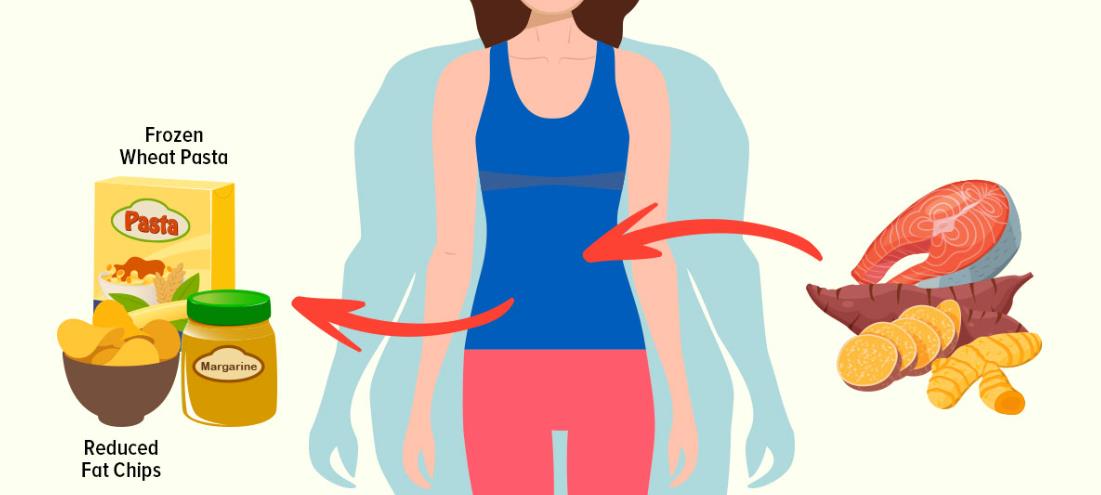 |
Six ways to do intermittent fasting: The best methodsIntermittent fasting is an increasingly popular diet option for weight loss. There are several programs, but this guide can help you find out which one is |
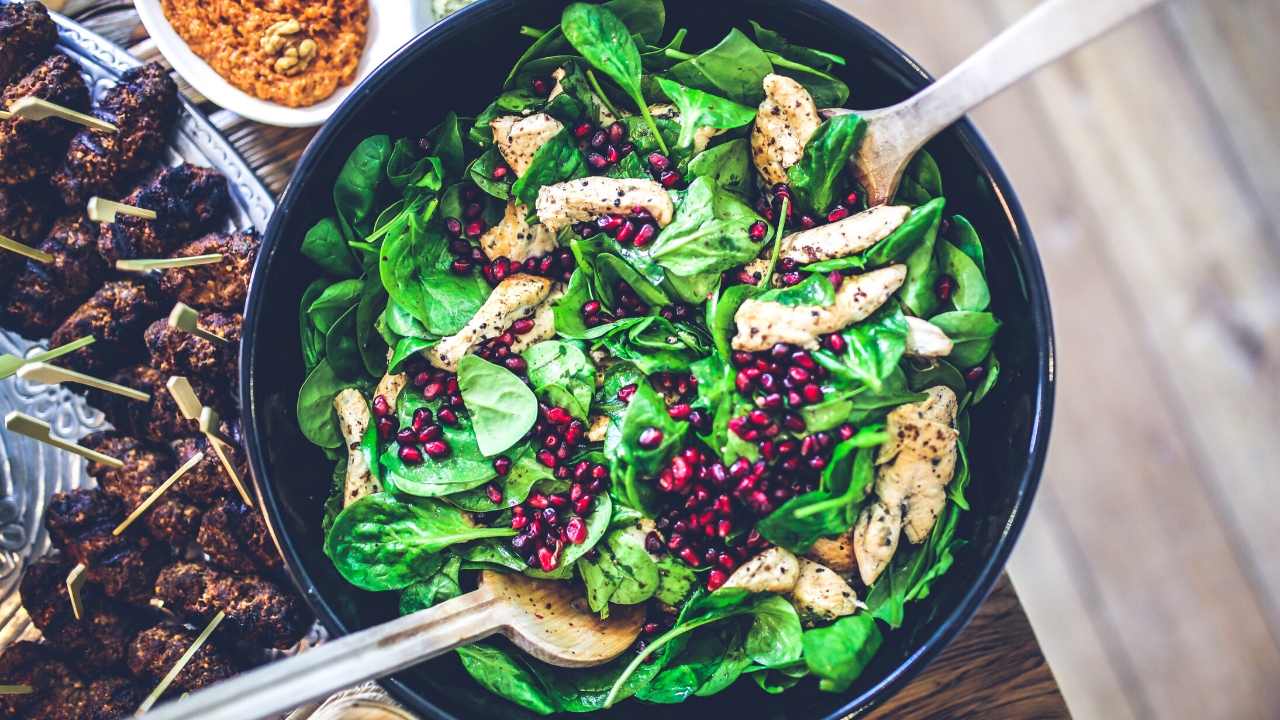 |
Does lemon water break a fast? — explained by SIMPLEWhen you’re intermittent fasting, drinking plain old water can get pretty boring, pretty fast. As a human with taste buds, you naturally want to bring a |
 |
Top Intermittent Fasting AdvantagesThere are many advantages to intermittent fasting as a strategy for weight loss. Intermittent fasting can work with any diet... |
 |
Weight Loss (Low Carbohydrate Diets)Low carb diets have often been used throughout history for weight loss. Although sometimes called a fad, low carb diets have actually more science... |
 |
The Key Factors of Weight LossWeight gain and obesity, like any medical disease, is multifactorial. This means that there are many factors that cause weight gain... |
 |
Diet A to Z: Intermittent FastingThe two-day-a-week diet: How intermittent fasting can help you lose weight and boost your health. |
 |
How Doctors Lose WeightHow do doctors lose weight? For their patients, doctors often advise following standard diets, but when trying to lose weight themselves... |
 |
Vacation Weight Loss PlanWhat is the best vacation weight loss plan? Most people [...] |
 |
Rat Model: Intermittent Fasting Normalizes High Blood Pressure Induced by Harmful Intestinal BacteriaPrevious studies have shown that a harmful combination of gut bacteria can cause high blood pressure (hypertension) in humans and other animals. Having a |
 |
Your D-I-E-T Meditation PlaylistIn my TEDx talk, I suggest recasting the noxious word “diet” into D-I-E-T — a reminder to ask ourselves “Did I Enrich Today?” One of the ways we can enrich…The |
 |
Holiday Health (Damage Control)With the holidays on us, maybe your intermittent fasting schedule isn’t as rigorous as it once was. That’s not necessarily a bad thing, because social |
 |
You Got a Zero.Zero’s not been my hero. Through grade school and college, zeroes used to be something of a monster in my mind. Teachers illustrated just how bad a zero is |
 |
Intermittent Fasting ExperiencesI took part in an energetic discussion of intermittent fasting experiences as part of the release of Women Action Takers Who Gained By Losing for which I wrote |
 |
How to Break a Fast: What to Eat After FastingHow to Break a Fast: What to Eat After Fasting Written by Stephen Anton PhD on May 15th, 2022 How to break a fast? This is an excellent question and one |
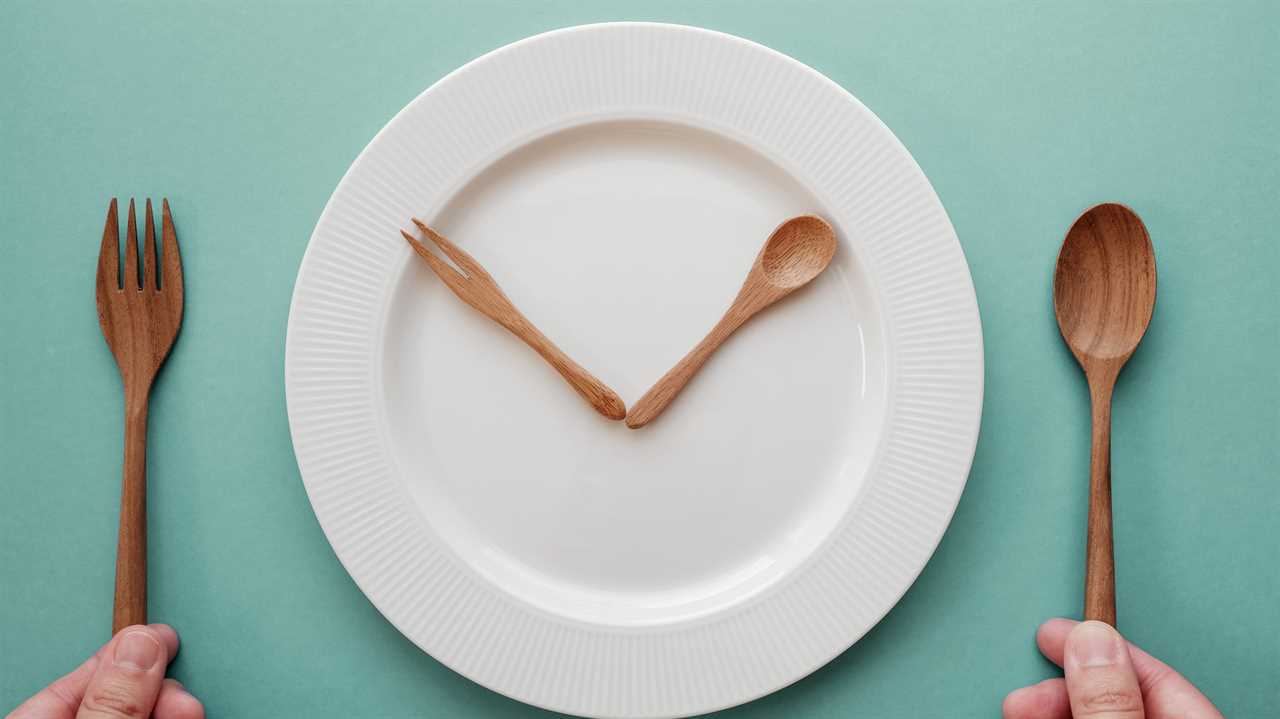 |
Intermittent fasting (IF): Your complete guide - Diet DoctorIntermittent fasting is popular, effective, and easy. This guide tells you how to get started with a successful intermittent fasting routine. |
 |
How to Believe in Yourself: 10 Tips for Becoming Your Best SelfHow to Believe in Yourself: 10 Tips for Becoming Your Best Self Guest Post by William Anton PhD on June 12th, 2022 William D. Anton, Ph.D is a renowned |
 |
36-Hour Fast (Monk Fast): Everything You Need to Know36-Hour Fast (Monk Fast): Everything You Need to Know Written by Stephen Anton PhD on July 5th, 2022 The 36-hour fast is a challenging fast in that it |
 |
18/6 Intermittent Fasting: Is It the Right Plan for You?18/6 Intermittent Fasting: Is It the Right Plan for You? Written by Stephen Anton PhD on November 29th, 2022 Intermittent fasting has become one of the |
 |
20/4 Intermittent Fasting: The Pros and Cons of a Longer Fast20/4 Intermittent Fasting: The Pros and Cons of a Longer Fast Written by Stephen Anton PhD on January 25th, 2023 There are so many different approaches to |
 |
5 Intermittent Fasting Methods, ReviewedIntermittent fasting comes in many shapes and forms. This article reviews its pros and cons so you can decide if it's worth a try. |

